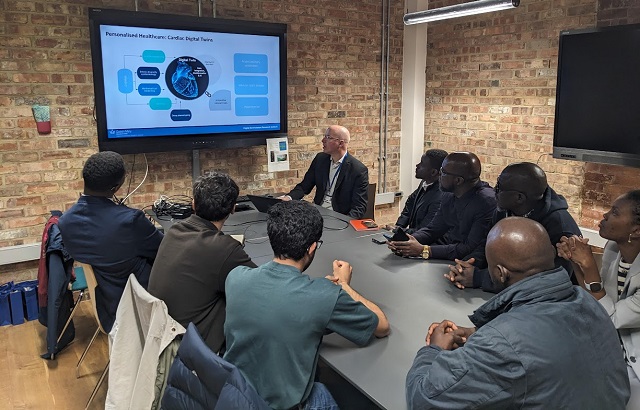DERI and DSTI signed a Memorandum of Understanding (MoU) to explore the application of data science and machine learning to predict and mitigate the impacts of climate change on rainfall patterns in Sierra Leone, one of the countries in West Africa. The collaboration aims to develop a more accurate understanding of rainfall patterns and inform effective climate change adaptation strategies.
The partnership will involve helping DSTI in its analyses of satellite data to identify trends and patterns in rainfall distribution and intensity. By leveraging advanced data analytics techniques, researchers hope to develop predictive models that can help anticipate extreme weather events, such as floods and droughts, inform decision-making on disaster preparedness and response, and guide agricultural activities.
“This collaboration is a significant step towards addressing the urgent challenges posed by climate change in Sierra Leone, and the sub-region of West Africa” said Professor Cédric John, Head of Data Science for Environment and Sustainability at DERI. “By providing our expert advice in data science to the data science team at the DSTI, which has a deep understanding of local conditions, we can develop innovative solutions to help protect vulnerable communities and improve resilience.”
The MoU also outlines plans to expand this collaboration to other West African countries and explore potential funding opportunities to deepen the research collaboration. The DSTI is keen to leverage this partnership to strengthen its climate change initiatives both domestically and internationally.
“The Directorate of Science, Technology, and Innovation will leverage its productive relationship with QMUL, use science and technology to advance President Bio’s agenda on combating climate change, mitigating disasters, increasing food production, and building resilient communities,” said Abdul-Malik Tejan-Sie, Director of the Directorate of Science, Technology, and Innovation (DSTI).
DERI is committed to working closely with its partners in Sierra Leone to ensure that the research outcomes are relevant and impactful. The collaboration will also contribute to building capacity and knowledge in data science and climate change research within Sierra Leone.
